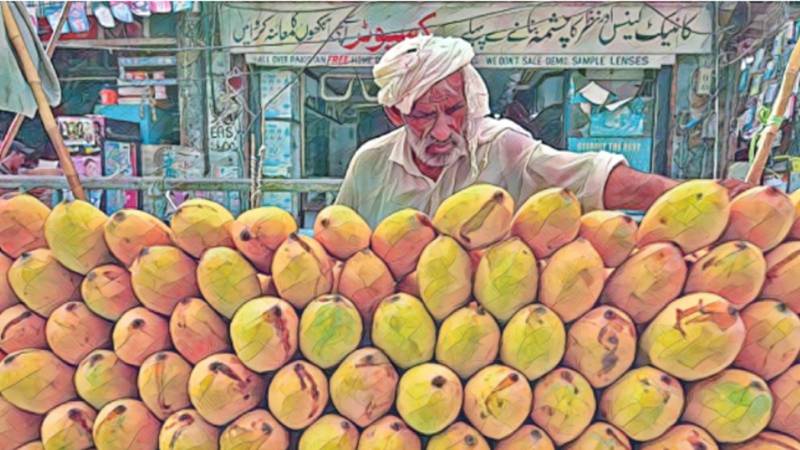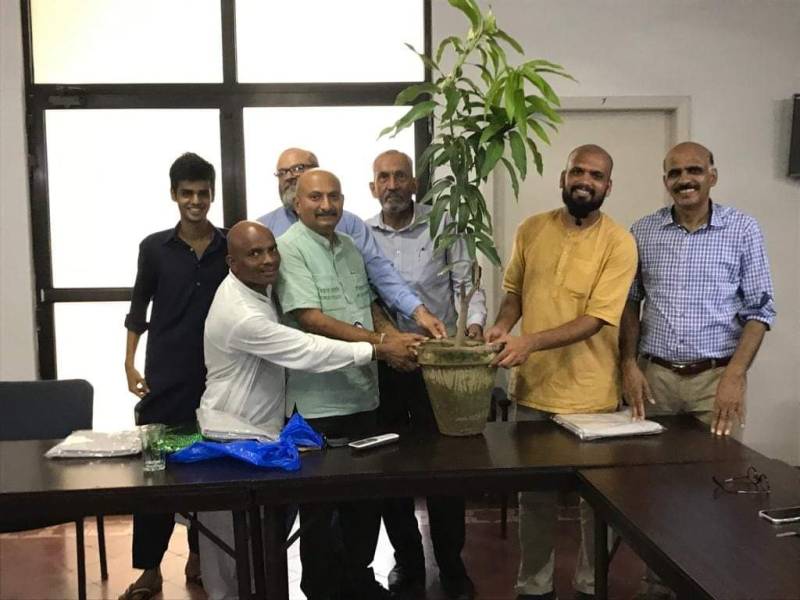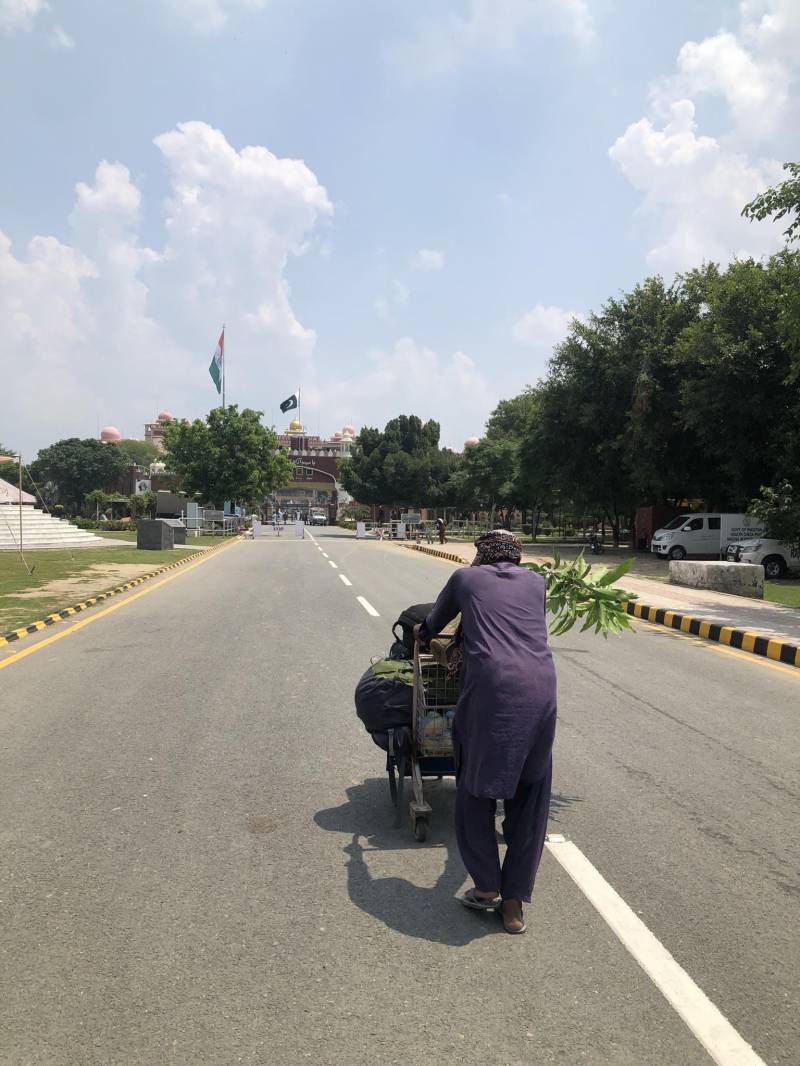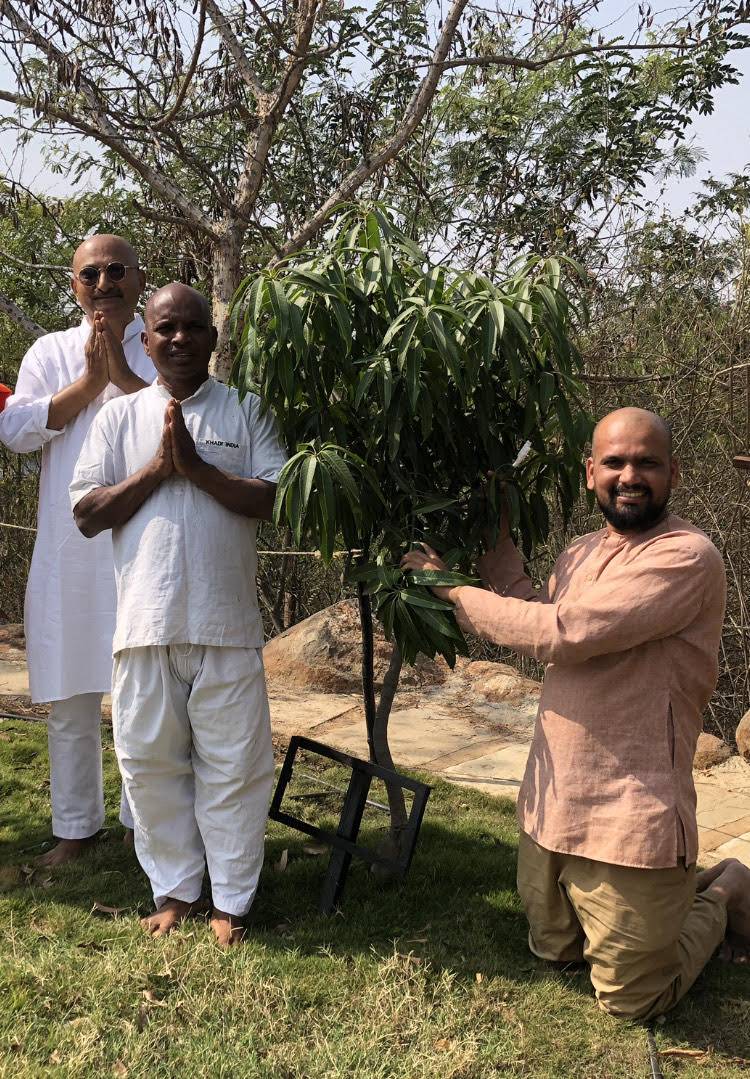
Nestled on the fringes of Pune, Maharashtra, by the Garade River, the Peace Hill Garden is a testament to nature's impartiality and the potential for human unity. At a time when governments on both sides of the border do not see eye to eye with each other, in this garden an exceptional mango tree has flourished, a living symbol of the reconciliation efforts between India and Pakistan.
This unassuming botanical ambassador owes its life to a group of peace enthusiasts, whose aspirations have achieved what decades of political diplomacy have yet to solidify.
The tale begins with a sapling of Chaunsa, a renowned Pakistani mango variety, which was planted in Pune's fertile grounds in 2022. Fast forward two years, and this Chaunsa has been grafted with Kesar, its Indian counterpart revered for its unique flavour. The resulting hybrid seedling, rooted in the same Garden of Peace, embodies the hope for Indo-Pak relations as delectable and cherished as the mango – a fruit dearly beloved in both nations.

While the novel mango variant awaits a name and patent, the Indian Peace Walkers – the custodians of the sapling and the emissaries of Mahatma Gandhi's ethos of peace and non-violence – anticipate the day, perhaps two or three years hence, when they can present its inaugural harvest to the Prime Ministers of India and Pakistan.
The Indian Peace Walkers are not merely gardeners of flora but also cultivators of goodwill.
Their journey has spanned 50 nations, involved cycling over 25,000 kilometres, and walking an additional 16,000, epitomised by their sojourn across Pakistan in July and August of 2022.
During their 24-day exploration, they embedded themselves in the communities of Karachi, Shikarpur, and Lahore, with interludes in Hyderabad and Multan. Their peace walk in Karachi, aided by local human rights advocates, captured the attention of the Pakistani press.
“The walk was very successful and got very good publicity in the Pakistan press. After which the other city administration denied us permission to hold these walks,” recalls Yogesh VishwaMitra, who led the delegation.

In every school and institution they visited thereafter, they held dialogues on peace. Reflecting on the expedition, Nitin S. recounted the poignant farewell in Lahore, where their hosts bestowed upon them a living emblem of shared heritage: a Chaunsa sapling.
Recalling the trip another walker Nitin says, “The entire trip was so overwhelming that before leaving from Lahore, we expressed our desire to carry something which was like a symbol of life and was common to both the nations. And what better than a plant.”
The tale begins with a sapling of Chaunsa, a renowned Pakistani mango variety, which was planted in Pune's fertile grounds in 2022. Fast forward two years, and this Chaunsa has been grafted with Kesar, its Indian counterpart revered for its unique flavour
The peace walkers celebrated the Pakistan Independence Day on August 14, with the members of the Human Rights Commission of Pakistan (HRCP) at Lahore.
Irshad Ahmed, a Lahore based peace activist then got them a sapling of Chaunsa mango. “Taking a plant across the border was difficult, But it was like a seed of hope for peace and friendship. It was difficult but the Indian peace walkers were very excited about taking it,” he told The Friday Times.

To get the four feet long flower pot pass through the immigration at the Wagah- Attari border was no cake walk.
The challenges of carrying this botanical symbol of hope across borders were manifold. The sapling's passage through Wagah-Attari border controls was a daunting affair, punctuated by scrutiny from officials representing various agencies of both nations. Their persistence, coupled with the sapling's undeniable representation of peace, eventually swayed the authorities.
“We knew it was not going to be easy. But we did not want to leave the plant in Lahore without giving it a try to reason with the officers of all ranks on both sides,” says Nitin, recalling it as one of the most memorable days of his life.
It took several hours of persuasion, to convince the officials on the Pakistan side. “We tried all kinds of emotional arguments like our common roots, that the soil does not discriminate life and whatever best we could think of then," adds Nitin.
Finally, the permission to carry the plant out, came from the Pakistan desk. Which was convinced that the Indian Port at Attari would hold the plant back.

A notable moment at the Indian checkpoint encapsulates the power of their mission. When an officer discovered a flute amongst their possessions, Gandhian and flautist Jalandharnath Channole was asked to perform. The melody of 'Vaishnav Jan To', a favourite hymn of Gandhi, echoed through the hall, followed by their anthem for global peace, creating a moment of profound stillness and reflection among the assembled crowd.
Ultimately, despite their adherence to regulations, which initially led to the sapling's confiscation, the officers were moved by the activists' dedication. The plant was returned to them, alongside an offering of water, a poignant gesture underscoring the shared humanity beyond the uniform.
The sapling that travelled from Amritsar to Delhi on a bus and further on to Pune on a train is a testament to the walkers' perseverance and the significance they placed on this living symbol.
Since then, VishwaMitra, inspired by the journey, has eschewed his surname, embodying his newfound identity as a 'friend of the universe', transcending religious and regional barriers.
The Peace Hill Garden, much like its caretakers' vision, welcomes individuals of all faiths, nationalities, and cultures. After their return from Pakistan, a Global Peace Pole was erected within its embrace, inspired by the Japanese World Peace Prayer Society.
This new chapter in the garden's history was penned on January 30, a date observed in India as Martyrs' Day, marking Mahatma Gandhi's assassination. It was on this date that the Chaunsa mango was grafted with the Indian Kesar, nurturing a legacy of harmony and optimism.

As the tree matures, the peace activists look forward to sharing its yield with Pakistan, in the belief that its fruit may someday represent a shared history rewritten with love and friendship.
As Lahore, peace activist Irshad Ahmed reflects on the news of the tree's blossoming with contentment. He recognises that the Peace Walkers have planted more than a sapling. "They have sown the seeds of hope for a future where the narrative of their shared region can be recast in the spirit of camaraderie and peace," he says.

